For travelers seeking deeper connections and insights, visiting places that highlight human resilience offers a meaningful way to mark the International Day of Tolerance. Museums and memorials dedicated to human rights, peace, and remembrance allow us to reflect on historical injustices and embrace the lessons they hold.
In these settings, visitors engage with the impact of prejudice and the enduring need for empathy. By walking through exhibits that confront painful histories — from the horrors of the Holocaust in Auschwitz to the devastation of the atomic bomb in Hiroshima — travelers are reminded of humanity’s shared commitment to peace, inclusivity, and understanding. Each site invites us to stand in solidarity against intolerance and recognize the importance of compassion across borders.
Museum of Tolerance – Los Angeles, California, USA
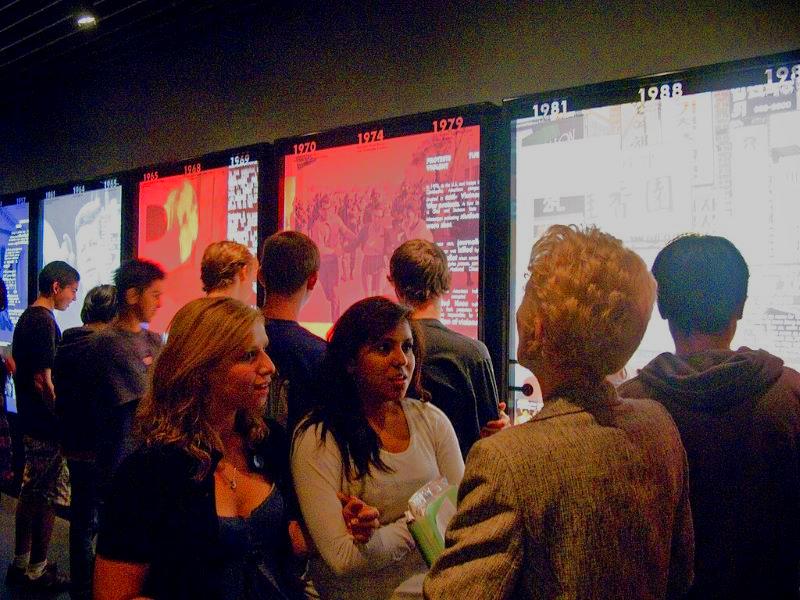
Museum of Tolerance by Louise Palanker licensed under CC BY-SA 2.0 DEED
The Museum of Tolerance in Los Angeles is a thought-provoking space dedicated to addressing some of humanity’s darkest moments while promoting empathy and understanding. Opened in 1993, this museum is known for its focus on the Holocaust, as well as on contemporary issues like racism, bullying, and the effects of hate in modern society. The museum encourages visitors to actively engage with these difficult topics through interactive exhibits and reflective spaces.
One of the museum’s most significant areas is the Holocaust section, which delves into the stories of individuals affected by the Holocaust, presenting their experiences and hardships in a deeply personal way. Another impactful space, the Tolerancenter, features exhibits that explore present-day issues, allowing visitors to see how the struggles of the past resonate with current social challenges. Special exhibits and programs tailored for younger visitors help cultivate empathy and awareness from a young age.
Canadian Museum for Human Rights – Winnipeg, Manitoba, Canada
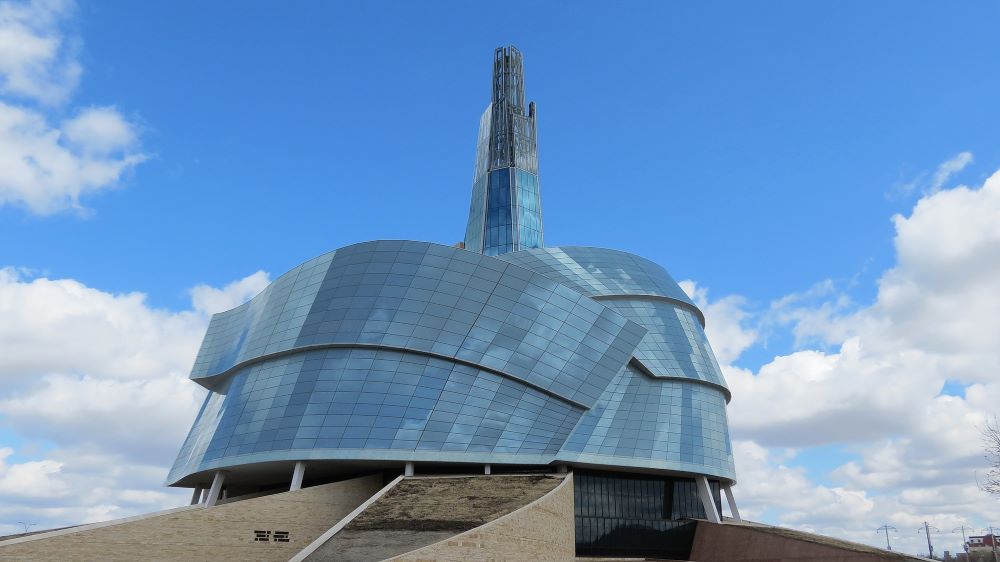
Canadian Museum for Human Rights, Winnipeg by Robert Lindsell licensed under CC BY 2.0
Located in the heart of Winnipeg, Manitoba, the Canadian Museum for Human Rights is devoted to exploring and promoting human rights on both a national and global scale. Opened in 2014, it is Canada’s first national museum built outside the capital and remains one of the most architecturally striking and culturally important sites in the country. Through its galleries, the museum delves into a wide array of human rights stories, from Indigenous rights and the sad legacy of residential schools to the global fight for LGBTQ+ rights and gender equality.
The museum’s exhibits are both moving and informative, encouraging visitors to reflect on historical injustices while also considering the ongoing challenges facing marginalized groups today. Noteworthy sections include the “Stories of Courage,” which highlights individuals who have fought for human rights, and the “Reconciliation Journey,” which focuses on Canada’s path toward honoring Indigenous cultures and rights. Interactive displays offer immersive experiences, such as walking through scenarios in which human rights are at risk, fostering empathy and awareness.
National Museum of African American History and Culture – Washington, D.C.
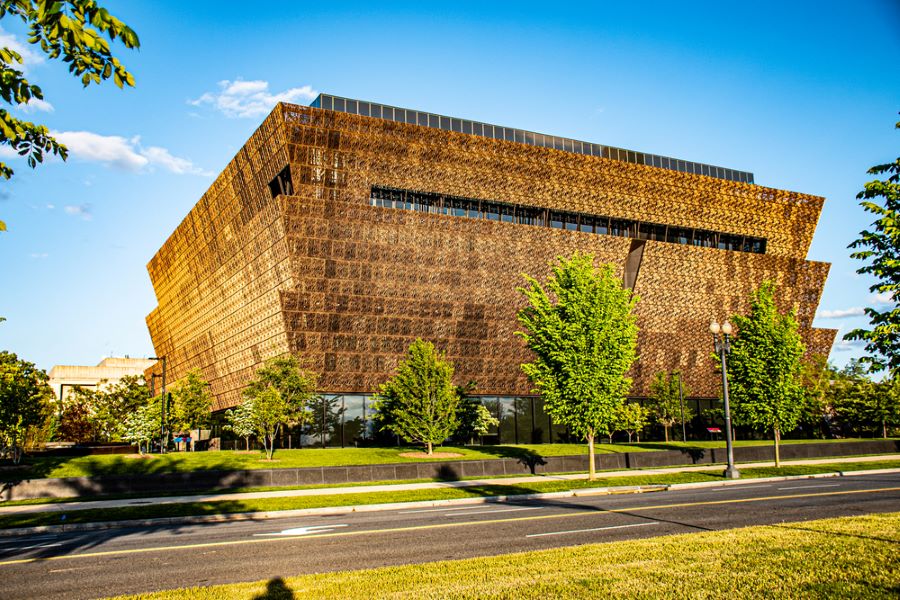
African American History Museum, Smithsonian, Washington, D.C.
The National Museum of African American History and Culture, situated on the National Mall in Washington, D.C., and is part of the larger Smithsonian institution. The museum provides a comprehensive view of the African American experience and the ongoing struggle for civil rights. Since its opening in 2016, the museum has offered visitors a compelling narrative that spans centuries, exploring themes of resilience, culture, and social justice. Through immersive exhibits and poignant artifacts, the museum highlights the impact of slavery, the fight against segregation, and the achievements that define African American history.
Key exhibits include “From Slavery to Freedom,” which covers the history of enslaved Africans in America, and the civil rights movement galleries, which document pivotal moments in the fight for equality. A more contemporary exhibit, centered around the Black Lives Matter movement, connects past struggles to current efforts for social justice.
Auschwitz-Birkenau Memorial and Museum – Oświęcim, Poland
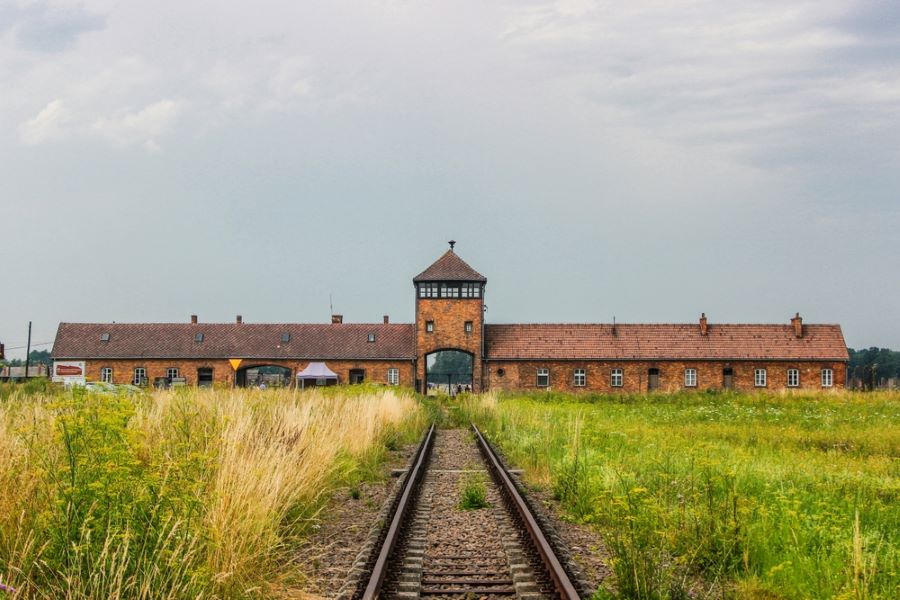
Auschwitz-Birkenau Memorial, Poland
The Auschwitz-Birkenau Memorial and Museum in Oświęcim, Poland, is a solemn site dedicated to preserving the memory of the millions of lives lost during the Holocaust. Located on the grounds of the former Nazi concentration and extermination camp, Auschwitz-Birkenau is a powerful place for remembrance and reflection, offering visitors a deeply moving experience. The museum honors the victims by preserving original structures, artifacts, and personal items that bear witness to the atrocities committed here.
Exhibits include preserved barracks, watchtowers, and the remnants of gas chambers. Guided tours provide historical context, allowing travelers to better understand the scale and impact of this dark chapter in human history. Each exhibit, from suitcases and shoes to documents and photographs, carries stories of the individuals who suffered and perished.
Peace Memorial Museum – Hiroshima, Japan
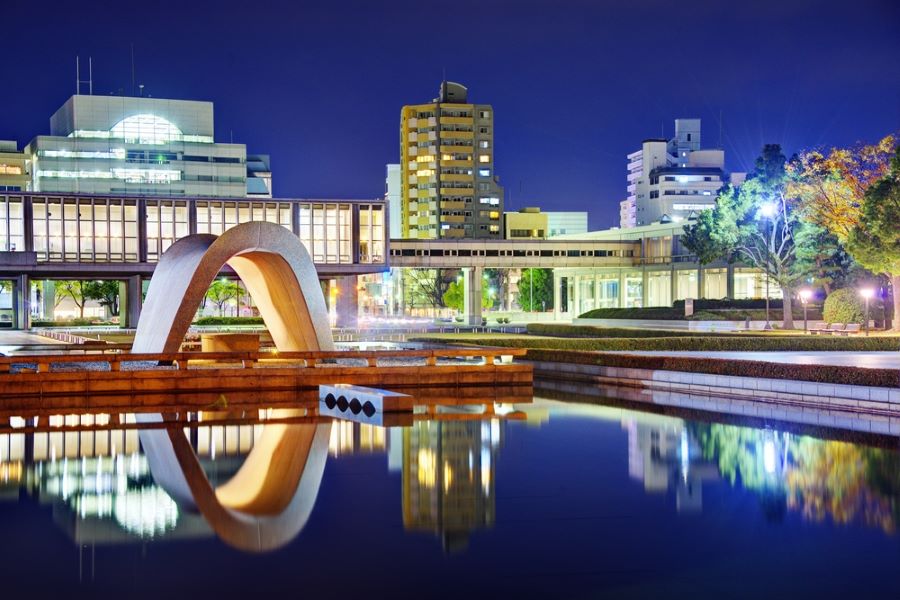
Hiroshima Peace Memorial Park, Hiroshima, Japan
The Peace Memorial Museum in Hiroshima, Japan, offers a profound look into the devastation caused by the atomic bomb dropped on the city in 1945. Located within the Hiroshima Peace Memorial Park, the museum aims to educate visitors about the horrors of nuclear warfare and advocate for a world free from such destruction. Through an extensive collection of artifacts and stories, the museum vividly portrays the tragic impact of the bomb on the city and its people.
Key exhibits include personal belongings of victims, detailed accounts of survivors (known as hibakusha), and photographs that document the destruction and its aftermath. The museum also features educational programs and exhibits focused on promoting peace, inviting visitors to consider the far-reaching consequences of war.
You Might Also Enjoy: Five Family-Friendly Pride Destinations Around the World
War Remnants Museum – Ho Chi Minh City, Vietnam

Le musée des Souvenirs de guerre by Jean-Pierre Dalbéra licensed under CC BY 2.0
The War Remnants Museum in Ho Chi Minh City offers a poignant exploration of the Vietnam War’s impact, focusing on themes of resilience and the lasting importance of peace. Opened in 1975, this museum educates visitors on the conflict’s profound effects on Vietnam, emphasizing the human costs of war and the need for mutual understanding. Through historical artifacts, photographs, and personal accounts, the museum underscores the consequences of conflict on societies and individuals alike.
The museum’s exhibits cover various aspects of the war, from the experiences of Vietnamese civilians to the global anti-war movement. By presenting these diverse perspectives, the War Remnants Museum encourages visitors to consider the importance of empathy and tolerance in a world too often divided by conflict.
FAQs:
Q: What are the typical hours for these museums and memorials?
A: Most museums listed here are open daily, though hours vary. Typically, they are open from late morning to early evening, but it’s best to check the official website as hours may change seasonally or for special events.
Q: Do these museums require advance reservations?
A: Many of these sites recommend or require advance reservations, especially during peak travel seasons. Online booking is often available on the museum’s official website.
Q: Are there entrance fees?
A: Most museums charge a nominal entrance fee, with some offering free or discounted entry on certain days. It’s a good idea to check each museum’s website for up-to-date pricing.
Q: Are these museums accessible to visitors with disabilities?
A: Many of these museums strive to accommodate visitors with disabilities, with ramps, elevators, and accessible restrooms. It’s advisable to review specific accessibility details on each museum’s website.
Q: Can photography be taken inside these museums?
A: Photography policies vary. While some museums allow photos in certain areas, others restrict it to preserve artifacts or respect the solemn nature of the exhibits. Always check the policy at the entrance or online.
Q: Do these museums offer guided tours?
A: Yes, guided tours are available at most of these museums and are often recommended for a deeper understanding. Some museums also offer audio guides in multiple languages for self-guided tours.
Q: Are these museums family-friendly?
A: While many museums provide content suitable for children, some exhibits may be intense or emotional. Parents might consider the maturity of their children when planning a visit.




Leave a Reply